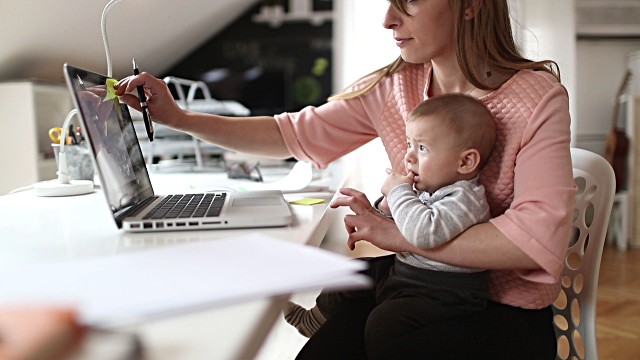2. June 2020
In March 2020, everything changed. The whole world felt the impact of the coronavirus crisis that surprised us all, including the scientific community. Each country and social group felt the impact of the crisis in a different way. Global media, including The Guardian, Nature, and Nature Index pointed out the (not so surprising) facts about the crisis' impact on male and female researchers. Many female academics stated that juggling their research careers with childcare is overwhelming. Preliminary research suggests that these changes in productivity could negatively affect their careers.

The situation at CEITEC was no different. Schools in the area have been closed since 11 March, and CEITEC parents were suddenly left without childcare. The majority of our researchers moved to Brno for work, and do not have families in the area to help them. Luckily, the Masaryk University mobilized student volunteers, who were ready to assist local families with teaching and babysitting. The closing of schools also resulted in an increase in chores, such as cooking and cleaning, in which female researchers are often far more involved than their male colleagues. Foreign researchers suddenly had to homeschool their children who were already enrolled in Czech schools, and single mothers had to cope with everything on their own. All CEITEC parents were surely slowed down by the lockdown, but women were probably affected the most.
According to a recent article published in The Guardian, scientific journals reported a drop in the number of submissions by female authors, while the submissions by male authors increased. Doing research has become a luxury for many female scientists, which was too difficult to be squeezed into their busy lockdown schedules and adaptations to online teaching. Funding bodies are aware that many women might be struggling to find time to prepare research grants and enter competitions for new funding.
Another article published in Nature points out that academic careers, where performance is measured by the researcher’s ability to produce a number of high-quality scientific publications and obtain research funding, are not compatible with family life. This fact was highlighted during the coronavirus crisis, in which parents were at a disadvantage, compared to non-parents. The crisis also revealed that even in the most gender-egalitarian countries in Northern Europe, women performed almost two-thirds of the unpaid housework and childcare.
A recently published report investigating the effects of the pandemic on women in the science, technology, engineering, and mathematics (STEM) workforce in Australia suggests that female researchers will also be more affected by the long-term negative implications of the crisis. Another German study suggests similar conclusions. Gender experts fear that women might be “the first to go” during pandemic-related cuts because they more frequently hold casual and short-term contract positions.
Overall, the COVID-19 experience is changing the way research is done, and we have to pay attention to the existing disparities. However, it seems that the only real is solution is a long-term commitment to gender equality. We would like to hear about your own experiences during the COVID-19 crisis, as we are striving to provide equal opportunities for all! Please use the form below to share with us your story. How did the COVID-19 crisis impact you?


 Share
Share